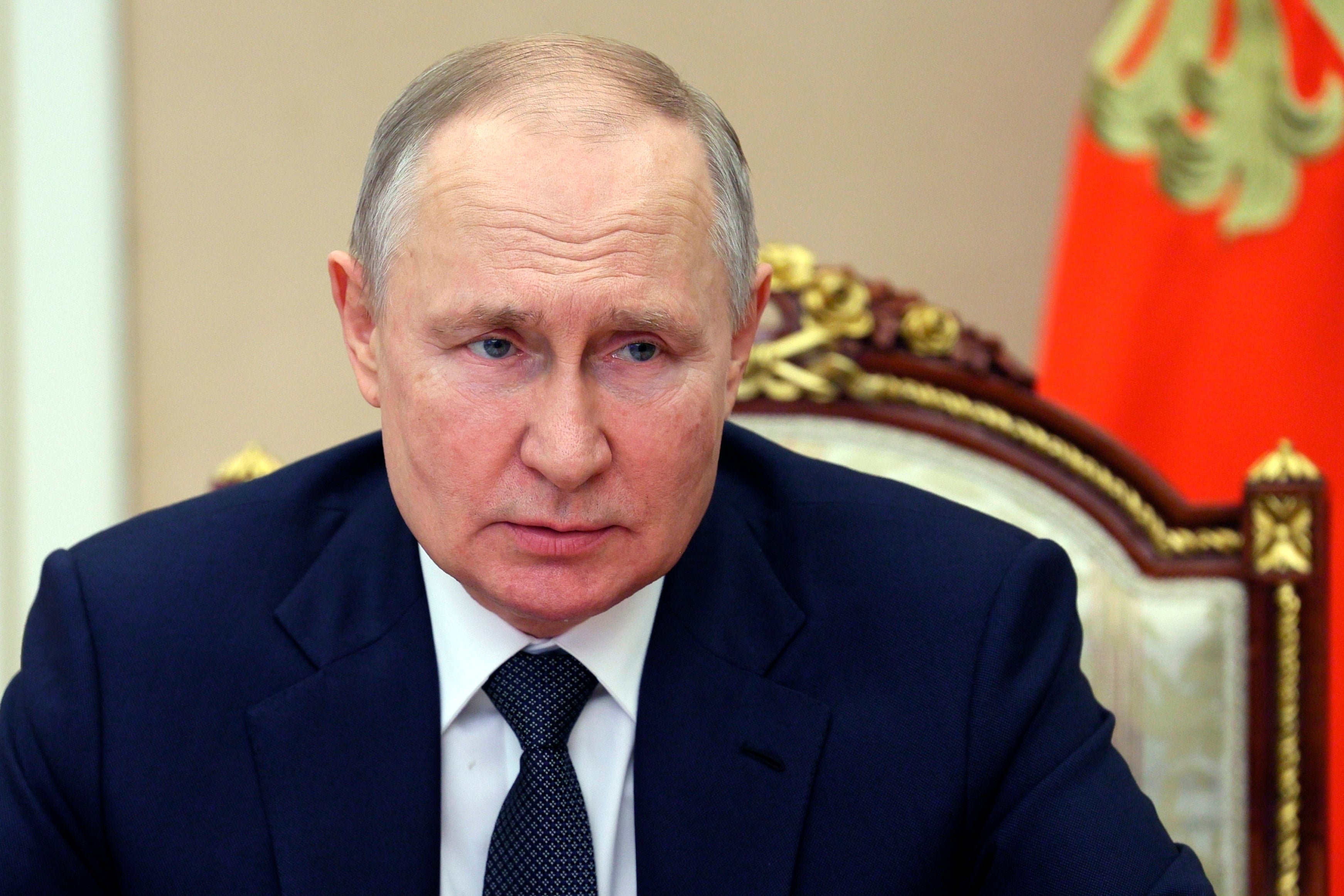Putin’s nuclear threats prove the war is not going his way
Editorial: With little sign of a breakthrough on the ground, Russia is attempting to weaken Western and Ukrainian resolve by waving the nuclear card around

Given the size of Russia’s nuclear arsenal and the range of delivery systems readily available to the Kremlin, it is difficult to see how stationing 10 tactical, shorter-range warheads in Belarus amounts to a decisive move in the Ukraine war.
Nonetheless, it is designed to send out a further menacing and aggressive message about the dangers of escalation. Although obviously more substantive than past vague threats about the use of weapons of mass destruction, there is not necessarily any reason to believe that this prospective deployment carries any more danger than existed before.
At its simplest, if Vladimir Putin wants to use a nuclear bomb to help him to win in the battlefields of Donetsk, then he can do so just as well from Russian as Belarusian territory (or at least, with only marginally more inconvenience). It is a bluff.
That is why the Pentagon has reacted with a calm, almost bored indifference. Reckless and desperate for victory as President Putin is, the deterrent effect of the doctrine of mutually assured destruction remains in place, and he knows it.
He is certainly signalling to the West that he resents Nato, and the wider Western support for Ukraine – but, more obliquely, his actions confirm that the war is still not going his way. He is not, in other words, upping the ante from a position of strength. It is a sign of weakness.
Indeed, the deployment may prove counterproductive in other ways. It marks a return to Russian tactical nuclear weapons being stationed beyond the national frontier, as was the case during the Cold War – and, for a time, immediately after the end of the Cold War and the collapse of the Soviet Union. That is hardly good news.
It also now places these fearsome weapons on the border of three Nato states – Poland, Latvia and Lithuania – and somewhat closer to Germany. That, however, will surely only serve to remind the nations of Europe, and the wider world, of the malign intent of Russia, and of the need for ever stronger collective security.
As with the invasion of Ukraine, which transformed a tired Nato into an effective and united front against Russian aggression, moving tactical nuclear weaponry ever closer to Nato states that were formerly part of the Tsarist and/or Soviet empires reminds them how much they have to lose.
President Putin claims that all this is following the precedent of US forces and weapons being stationed in Western Europe – except that the US presence is purely defensive, and as a precaution it has been amply justified by Russia’s unprovoked attack on Ukraine. The difference is that the US and other Nato nations have no interest in trying to annex Belarus (or Russia, for that matter).
Volodymyr Zelensky says that the Russians are turning Belarus into a “hostage”, and he is correct. So far from bolstering the country as a solid ally of Moscow – Belarus permitted its territory to be used by Russia as a base for the invasion – and shoring up the dictatorship of its president, Alexander Lukashenko, Mr Putin has made things harder for Belarusians, who must now be concerned about maintaining peace in their country.
It is Mr Putin who is pushing them into unwilling involvement in the war against Ukraine, and the consequences of doing so will be horrendous. Although Mr Lukashenko runs a brutal regime, with a taste for snooping and repression, the positioning of Russian nuclear weapons in Belarus will make his regime less stable. Russia may well lose a friendly nation rather than gain a fighting ally.
It is also difficult to believe that this attempted scaling up in tensions is something China’s president, Xi Jinping, wishes to see, given that it could result in the nuclearisation of the conflict. China, a nuclear power itself, might be indulgent towards Russia moving warheads to Belarus – but certainly not towards any actual use of them. It would also turn public opinion in “neutral” countries, such as South Africa and Brazil, firmly against Moscow.
Meanwhile on the ground, the slog continues, with little sign of a breakthrough on either side – hence the Russian attempt to weaken Western and Ukrainian resolve by waving the nuclear card around.
President Zelensky is honest enough to admit that there can be no large-scale Ukrainian counteroffensive without fresh supplies of ammunition, armour and drones. It is these, rather than nuclear bombs, that will eventually turn the tide of this war.






Join our commenting forum
Join thought-provoking conversations, follow other Independent readers and see their replies
Comments